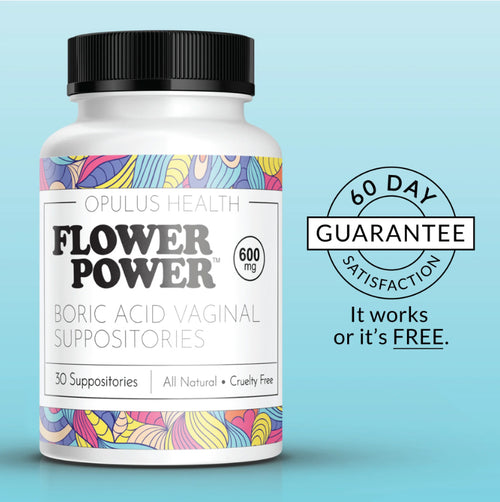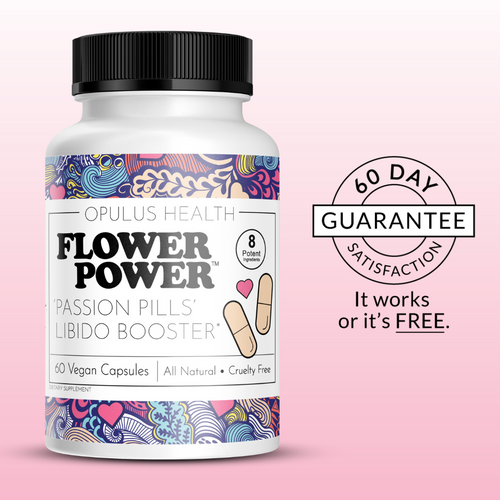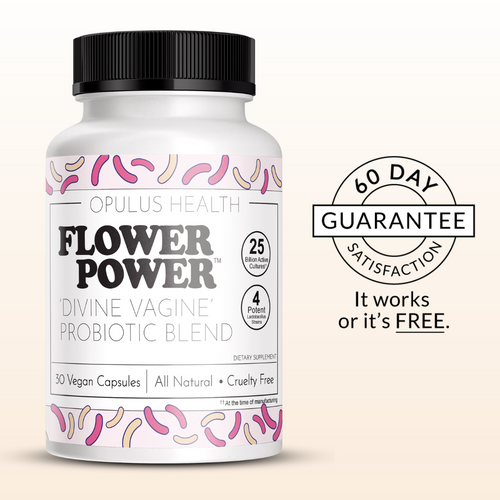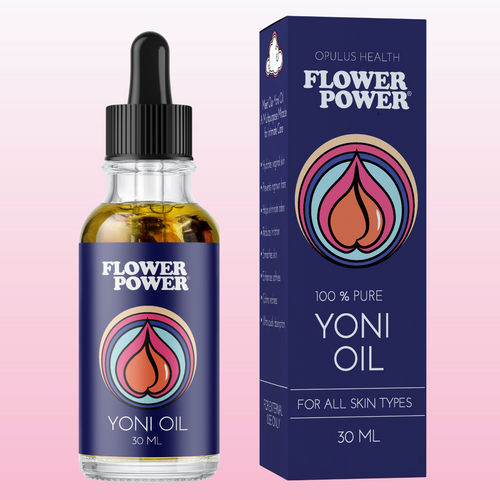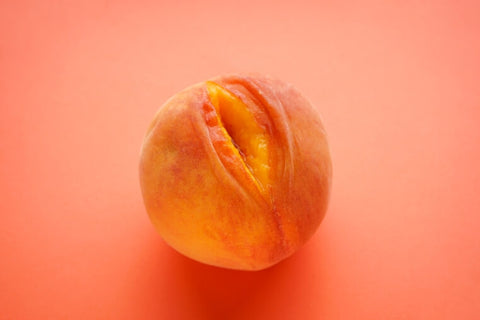
As we grow older, our whole body changes. Our hair gradually turns gray. We approach menopause… get there… and eventually hit our golden age. While all that is happening, our hormones also change. All through our body, we start to feel age catch up on us.
But this change happens throughout the body — including down south.
How the vagina changes as you age
Yes, the vagina “grows” older with our body. The change in hormones affects our mood but it also affects our vaginal microbiome. And the effect of that on the vagina can be good or bad.
When it’s good, the vagina naturally ages like fine wine. It becomes more and more elastic, producing more moisture and looking mature in a good way.
But when the change is bad, the vagina starts to atrophy. Atrophy means that the vagina starts to lose its elasticity, and dryness starts to set in.
Here are the 3 common ways the vagina ages in a bad way:
- The vagina loses its elasticity and dryness starts to set in
- There’s a noticeable change in odor and discharge
- The vagina shrinks and even shortens
1) The vagina loses its elasticity and dryness starts to set in
These are the most common ‘symptoms’ most women notice as they grow older.
They start to notice the vagina losing its elasticity. And soon they also notice that they’re as dry as a desert down south.
These symptoms are usually common in women that are past menopause. And they can really suck.
The good news is that you can halt or even reverse them. How? By understanding how the vagina ages and what happens inside your body.
How does the vagina age? What factors affect it the most?
The answer is hidden inside this hormone: Estrogen.
Estrogen is like the BFF of a young and vibrant vagina. Estrogen keeps the vaginal tissue moist and elastic. It stimulates your vaginal cells to lubricate when it’s time. And it also helps to maintain a good balance of bacteria in your microbiome.
But the older we get, our body starts to produce less and less estrogen.
That’s why once we get to menopause, estrogen production drops. When that happens, the vagina atrophies. The vaginal tissues become thinner and less stretchy. Moisture production drops and dryness starts to set in down there.
Most women first notice this dryness as a mild discomfort, or a bit of chafing during sex. Others might notice it suddenly as sex becomes more painful and less fun.
2) There’s a noticeable change in odor and discharge
Next, the second change experts notice in aging vaginas is the change in odor and discharge.
As we age, the vagina’s natural odor starts to change. This happens because the vagina starts to release a different kind of discharge.
Vaginal discharge is completely normal. It’s the vagina’s way of cleaning house and throwing away the dirty water. But the older we get, the more our body changes because of our changing hormones. And it’s these hormones that affect the vagina in a big way.
The hormonal changes can make your vaginal discharge different, and that starts to affect your natural scent. This is completely normal, and there’s no reason for you to freak out about it.
Your hormonal changes can affect your odor in another way. Remember earlier when we said that the hormone estrogen helps to maintain the balance of bacteria down south?
Well, when your estrogen production drops, your vaginal flora changes. The good bacteria die to a great extent and that makes you prone to vaginal issues like odor, dryness and BV.
That’s why many older women easily get vagina infections like BV. And as you may know, BV is a known cause of fishy vaginal odor.
(lf you’re struggling with vaginal odor and BV, why not clear things up with Flower Power medical-grade boric acid suppositories? It works fast. And it works or it’s free.)
3) The vagina shrinks and even shortens
Last but not least, as we age, the vagina changes in size. The vagina shrinks and shortens. And this is also caused by the decline in estrogen in the body.
That loss of estrogen leads to what’s known as “vaginal atrophy,” where the vaginal walls can become thinner. When that happens, the overall depth and width of the vagina decreases.
And that can have functional implications.
If the depth and width of your vagina decreases, you’ll start to notice some uncomfortable signs. Penetration will become more difficult due to those changes. Then sex becomes uncomfortable or even painful. Because of the pain, you start to not want to make love anymore and your libido may even drop.
The drop in libido can affect your life in several ways. You start to be self-conscious and start to lose confidence in yourself. Your partner may begin to feel that you’re not attracted to them anymore because you don’t feel like having sex. And the drop in libido also affects your overall energy, and you start to feel more tired through the day. Life, in general, is a lot less fun because you can’t do much without feeling worn out.
And what’s the root cause of all this? An aging vagina.
Once we learn how to halt or reverse that aging, all these problems will go away. Sex will become fun again. Your libido will get sky high and you’ll be bursting with energy through the day.
Let’s now look at how to keep the vagina young and fresh as we get older.
Tips to keep the vagina young and fresh
1.) Kegel Exercises – easy way to retain the vagina’s elasticity
Kegels. Are. Great!
If you don’t know what kegels are, they’re squatting exercises that target your pelvic floor muscles.
Those are the muscles that help you hold pee in. And exercising those muscles is great for your vaginal health.
To do the exercise, you have to contract and release the pelvic floor muscles. Just as you hold them to keep pee in, and release when you finally get to the restroom. That simple “contract and release” exercise can strengthen your pelvic floor muscles.
But most women who do kegels don’t get nearly enough benefit from it. Why? Because they don’t focus on exercising just those muscles. Or even when they do it, they don’t do it well.
If you want to get great benefits from the exercise, you need to focus on isolating your pelvic floor muscles. And once you find them, exercise only them. Hold the contraction for a few seconds, and then release. Contract and release. Contracting and releasing is one set. Aim for about three sets of 10 to 15 repetitions per day.
And consistency is key. Think of it as brushing your teeth; it’s something you should incorporate into your daily routine for lasting benefits.
When your pelvic floor muscles are healthy, your vagina will retain its elasticity. Result? Orgasms become a lot more powerful. You begin to halt or even reduce your vagina’s biological age. And you say goodbye to natural dryness and painful sex.
Now, who wouldn’t want that?
So try kegels. Kegels are amazing because you can do them from anywhere — from your desk at work to waiting in line at the grocery store.
For most women, kegels are the perfect exercise.
2.) Hormone Therapy and Lubricants
Kegels work, but not every woman will get the same degree of result from it. That’s where hormone therapy (HRT) and lubricants come in. Doctors heavily recommend them.
Hormone Replacement Therapy (HRT) helps to stop vagina aging by tackling the root cause. It helps to restore some of the estrogen you’ve lost, which can make a world of difference for your vaginal health. Once your estrogen levels are normalized, the vagina will start to return and look the way it was when you were younger.
But the cost of HRT can add up quickly. Another alternative is to try estrogen creams. They cost a lot less and can get you similar results. On top of that, estrogen creams work without affecting the rest of your body.
But maybe you don’t want to try any hormone treatment. Or maybe you just can’t afford them. If that’s the case, you’ve got other options.
Over-the-counter lubricants can provide instant relief for dryness, so you can make love more comfortable. Or you can try proven vagina moisture supplements that help the vagina produce more moisture. Or libido supplements that can help boost your libido.
3.) Diet and Hydration
Yes, you are what you eat, right? That’s true. And that applies doubly to your vagina. Yes, you can address the root cause of vaginal aging through your diet.
Here’s what you need to do:
First start with a balanced diet, but add this little twist: make sure your diet is rich in phytoestrogens (plant estrogens)!
Some foods that are rich in phytoestrogens are tofu and flaxseeds. They are phenomenal at helping you to maintain your estrogen levels.
Also, eat foods like salmon fish that are rich in Omega-3 fatty acids. They’ll help you to combat and prevent your vagina from slumping into vaginal dryness.
And finally, don’t underestimate the power of H2O. Yes, water. If you want to keep getting wet down there, your vagina will need water. So drink up to 8 glasses a day. Your vaginal tissues need all the water they can get to keep young… and to also supply you with water when you want to squirt or orgasm.
4.) Have more sex
Contrary to what most people think, having more sex won’t wear out your lady bits. It does the exact opposite; it helps you to keep the vagina young.
Have you heard this saying before: “Use it or lose it?”
If you have, then you know that it’s true. Anything you don’t use starts to wear away. And that applies to the vagina as well.
Each time you have sex, blood rushes to your lady bits. That health-giving blood helps to maintain your vagina’s elasticity and also improve blood circulation in the area. And this helps to keep your natural lubrication working as it should.
Having hot sex is like a gym workout for your lady parts. The pleasure and explosive orgasms are added bonuses, the icing on the cake.
5.) Vaginal Rejuvenation Treatments
And finally, there’s vaginal rejuvenation treatments.
Vaginal rejuvenation treatments are procedures that try to surgically reverse the effect of aging in the vagina. Some of the treatments include vaginal laser therapy and platelet-rich plasma (PRP) injections.
These procedures claim to restore vaginal tissue, improve elasticity, and even intensify the pleasure you can get from sex.
But before you book your appointment, do your homework. Consult a reputable healthcare provider. Read up on the procedure you’re interested in, and weigh the risks and benefits.
It’s your body, and you should be fully informed before making any decisions.
Conclusion
Your vagina grows older like the rest of the body. But that doesn’t mean that it must lose its luster or functionality. With more care on your part, you can keep your intimate area healthy and happy throughout your later years.

